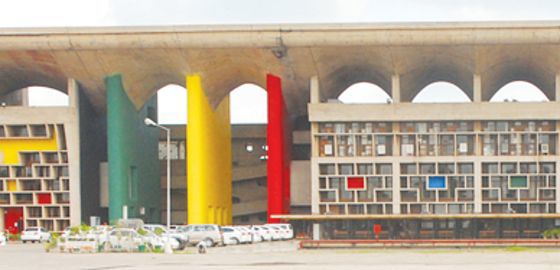High Court directs strict execution of SOP for detoxification of drug addicts in Punjab, Haryana, Chandigarh
Saurabh Malik
Chandigarh, July 21
The Punjab and Haryana High Court has asked the Chief Secretaries of Punjab and Haryana, along with the Advisor to the UT Administrator, to establish and implement a standard operating procedure (SOP) to facilitate the detoxification of drug addicts and reduce drug trafficking.
The Bench of Justice Sureshwar Thakur and Justice Sudeepti Sharma took note of the fact that Section 27 of the NDPS Act penalises consumers of narcotic drugs or psychotropic substances with rigorous imprisonment up to six months or a fine up to Rs 10,000, or both. But Section 64-A of the Act provides immunity from prosecution to addicts voluntarily undergoing treatment at government-recognised de-addiction centres.
Use drug detection kits: Court
- The key directives include filing an application with the trial judge for voluntary detoxification of the accused, using a drug detection kit to verify the individual’s addiction status, ensuring the completion of treatment at a de-addiction centre to grant immunity from prosecution, and deploying adequate plainclothes police personnel at de-addiction centres
- The court emphasised it would decrease drug demand and trafficking, lessen the investigative burden on officers and reduce trial court cases under the NDPS Act
- The immunity would extend to those dealing in small quantities of narcotic drugs or psychotropic substances, provided they underwent de-addiction treatment
The court emphasised the necessity of aligning Section 27 with Section 64-A to fully mobilise statutory provisions for the detoxification of drug addicts to decrease drug demand and trafficking, lessen the investigative burden on officers and reduce trial court cases under the NDPS Act.
The key directives include filing an application with the trial judge for voluntary detoxification of the accused, using a drug detection kit to verify the individual’s addiction status, ensuring the completion of treatment at a de-addiction centre to grant immunity from prosecution, and deploying adequate plainclothes police personnel at de-addiction centres to prevent untoward incidents.
The Bench asserted Section 27 and Section 64-A without such an SOP would remain ineffective, defeating the statute’s purpose. The court further directed trial judges to elicit consent from the accused for using the drug detection kit upon receiving a report under Section 173 CrPC or Section 193 of the Bharatiya Nyaya Sanhita, 2023.
If the accused is confirmed to be a drug addict and consents to treatment, the trial judge may send them to a recognised de-addiction centre. Upon completion of the treatment, the trial judge may grant immunity from prosecution as per Section 64-A, based on an application by the public prosecutor.
The Bench added that immunity would extend to those dealing in small quantities of narcotic drugs or psychotropic substances, provided they underwent de-addiction treatment. To ensure effective implementation, the court stressed the necessity for all concerned centres to purchase and stock drug detection kits.
Additional directives to tackle drug warlords
The High Court also issued a slew of directions to the Chief Secretaries of Punjab and Haryana, along with the Advisor to the UT Administrator, to bring to book drug warlords who deploy peddlers for trading narcotic drugs or psychotropic substances. The court noted that the central and state governments were empowered to exercise statutory leverages under the NDPS Act, but the lack of a “designated authority” rendered these provisions ineffective.
To galvanise these provisions, the court directed the immediate constitution of a designated authority to exercise statutory powers and ensure the provisions do not remain idle. Investigating officers are required to be thoroughly trained to make the provisions functional, understanding the conditions under which a designated authority can exercise discretion, particularly requiring the person claiming immunity to make a full and true disclosure of all circumstances related to the contravention.
The court directed the Registrar (Judicial) to circulate this order to all Chief Secretaries and Directors-General of Police in all federal states of India, ensuring nationwide compliance.









